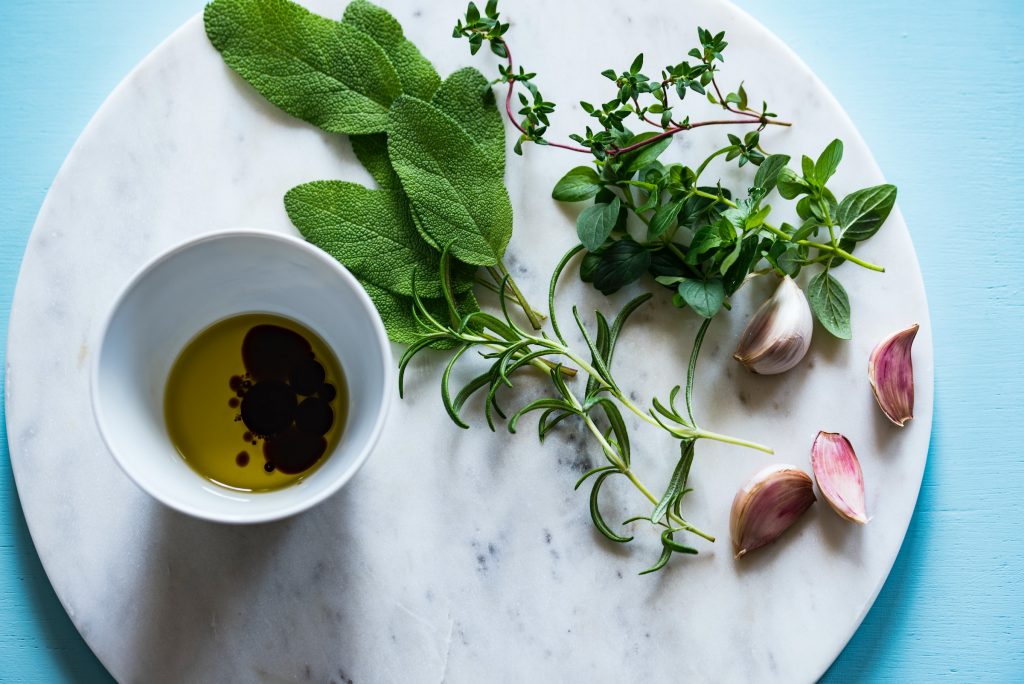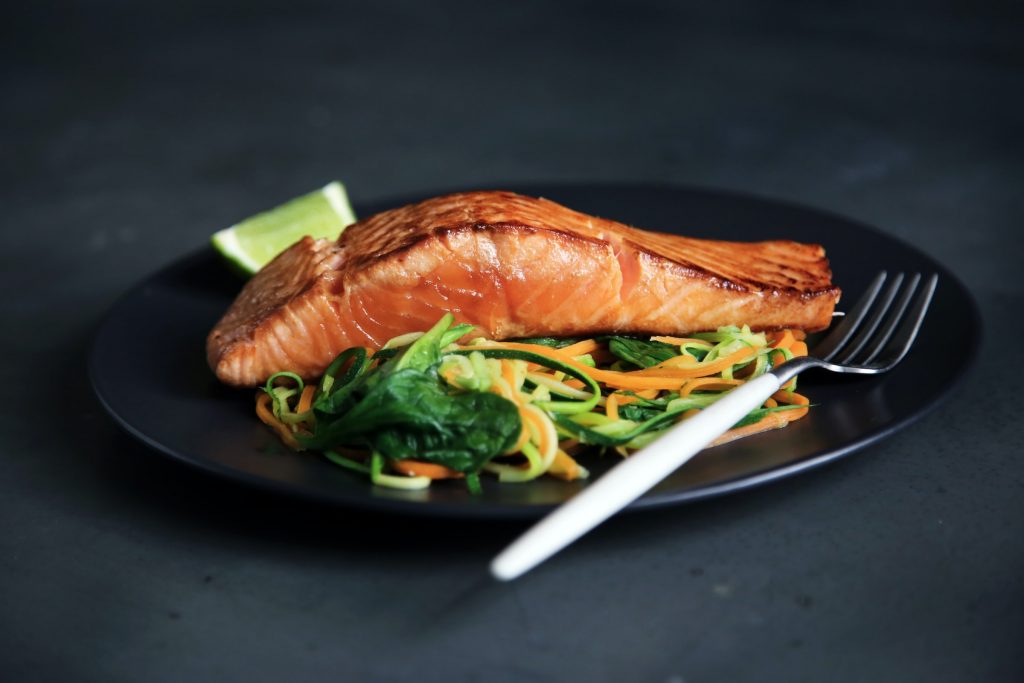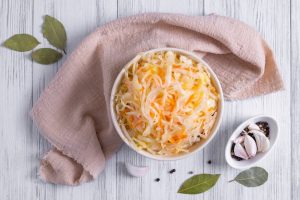They may sound like they would be healthy. However, vegetable and seed oils are increasingly being thought of as anything but healthy. The oils I am referring to include:
• Canola oil
• Sunflower oil
• Safflower oil
• Soybean oil
• Grapeseed oil
• Cottonseed oil
• Palm oil
• Peanut oil
• Rice bran oil
These highly refined seed and vegetable oils are ubiquitous in our foods. Start reading food labels and you will notice that they are in many common supermarket products. They will either be referred to as “vegetable oil” or as the specific type of oil. Some of the foods that contain them are:
• Packaged breads, rolls, wraps
• Canned tuna
• Biscuits, pastries, muffins
• Frozen meals
• Crackers
• Dips
• Toasted muesli and granola
• Dried fruit and roasted nuts
• Peanut butter
• Potato chips
• Plant milks – rice, almond, oat, soy
• Margarines, Nuttelex and spreadable butters
This is by no means an exhaustive list.
Why are vegetable and seed oils potentially unhealthy? A bit of a chemistry lesson first… These oils are what we call polyunsaturated fatty acids (PUFAs). There are two categories of PUFAs: omega-6 and omega-3 fats. The oils in question have a high composition of omega-6 fats. Foods such as oily fish, grass-fed meat, flaxseeds, hemp seeds, walnuts, chia and some green leafy vegetables provide omega-3 fats.
Both omega-6 and omega-3 fats are known as essential fatty acids. Humans need to source both types from dietary sources. However, there is an ideal ratio that we should aim for. The average western diet is said to comprise a ratio of more than 10:1 in favour of omega-6 to omega-3 fats. Some studies put it close to 20:1. The recommended ratio is around 4:1 of omega-6 to omega-3. Clearly our diets are heavily overloaded with the omega-6 variety.
When we consume polyunsaturated fats, they undergo an oxidation reaction whereby different eicosanoids (signalling molecules) are produced depending upon which types of fatty acids are the substrate. Omega-6 fats are converted into what are simplistically called proinflammatory eicosanoids such as prostaglandins (2-series), thromboxanes and leukotrienes. These compounds are associated with contributing to systemic inflammation and aggregation of blood platelets which is a factor in development of atherosclerosis (clogging of arteries). The omega-3 fats undergo conversion to less inflammatory eicosanoids as well as resolvins. Resolvins can mitigate inflammation and prevent tissue damage from occurring. Long term, this can offer protection from development of chronic diseases such as cardiovascular disease.
We are consuming these vegetable oils on such a huge scale that it is worrying to consider what the constant inflammatory cascade may be doing within our bodies. Inflammation in an acute scenario such as a sprained ankle or a respiratory infection serves a biological purpose as it facilitates healing. Systemic inflammation, that is, inflammation within the body, that persists for years or decades is highly destructive. It can damage tissue and organs, sometimes irreversibly. Chronic inflammation is implicated in the pathogenesis of many prevalent disease states including:
- Heart disease
- Type 2 diabetes
- Non-alcoholic fatty liver disease (NAFLD)
- Inflammatory bowel disease
- Osteoarthritis
- Autoimmune conditions like rheumatoid arthritis
- Cancer
- Depression
- Neurodegenerative conditions such as Alzheimer’s disease
Many years ago, people were told to steer away from using saturated fats like butter or lard when cooking. The theory was that saturated fats such as these were responsible for raising total cholesterol leading to atherosclerosis and heart disease. Studies have since challenged this thought and revealed that high consumption of sugar, refined carbohydrates and trans fats (such as in fried foods and commercial baked goods) are far more to blame for skyrocketing heart disease and metabolic syndrome than moderate use of those saturated fats.
Instead of using saturated fats, home cooks started buying vegetable oils and margarine, believing these to be the healthier alternatives. Food manufacturers added vegetable oils to almost everything. Restaurants go through gallons of the stuff every week because it is cheaper than using higher quality oils. However, heart disease is now the leading cause of death in Australia. No doubt this is due to many factors, but it is prudent to question whether high consumption of omega-6 PUFAs may be playing a role in the increase of chronic inflammatory diseases and rates of obesity in western nations. In the last few decades, the exponential rise in consumption of refined vegetable and seed oils is one of the most significant changes to our diets. Increased consumption of these oils goes hand in hand with the rise in convenience food consumption since those foods often include vegetable or seed oils within the ingredients.

Fortunately, most people use olive oil in home cooking now. Olive oil is a monounsaturated fat and it is low in omega-6. Opt for the organic, cold-pressed extra-virgin olive oils. Australian brands tend to be the best quality. Extra-virgin organic cold-pressed coconut oil is another good option for cooking when appropriate to the recipe. Otherwise, use good old-fashioned butter when it suits the dish and take care not to go overboard. Ensure butter is organic, grass-fed. Avocado oil, another monounsaturated fat, is perfect for drizzling over salads and can also be used for cooking.
Our excessive intake of vegetable and seed oils largely comes from the highly processed packaged products we stock in our fridges and pantries and from food we eat in restaurants.
It is virtually impossible to avoid these inflammatory oils all together. But we can reduce our consumption by doing the following:
• Buy organic products – they’re less likely to contain low-quality, genetically modified oils.
• Shop at health food stores where healthier brands are stocked.
• Limit the amount of restaurant meals you eat each week.
• Bring lunch from home to work so you know what’s in it.
• Get savvy with reading ingredients lists and choose accordingly.
There are many products that contain vegetable oil even though it’s totally unnecessary. An example is peanut butter. An organic peanut butter without added oil is far more delicious than the commercial ones on the supermarket shelf. When it comes to bread, look for organic seeded sourdough. Some supermarkets stock them now. Otherwise, visit a health food store. Since bread is a high-consumption product in many homes, it makes sense to purchase a good quality one that doesn’t contain vegetable or seed oil.

Additionally, be aware of incorporating some omega-3 fats into your diet each week to shift the fatty acid oxidation pathway away from being so heavily slanted toward the inflammatory omega-6 side of things.
If you eat meat, opt for grass-fed organic cuts. These have been shown to contain higher levels of omega-3 fats than grain-fed meats. They still contain omega-6 fats but the ratio to omega-3 is more favourable than in grain-fed meats.
Consume fish such as salmon once or twice a week (unless pregnant, due to mercury concerns). Look for Australian fish that is ‘responsibly’ or ‘sustainably’ sourced.
In the mornings, add some chia, walnuts or hemp seeds and spinach into a berry smoothie.
These dietary considerations may help prevent an inflammatory overload from excessive omega-6 PUFA consumption and the potential longer term health implications.
Sources:
Australian Bureau of Statistics. (2022). Health conditions prevalence. https://www.abs.gov.au/statistics/health/health-conditions-and-risks/health-conditions-prevalence/latest-release#heart-stroke-and-vascular-disease
Australian Government Department of Health. (2021). Genetically modified (GM) canola in Australia. https://www.ogtr.gov.au/sites/default/files/files/2021-06/12_-_genetically_modified_gm_canola_in_australia.pdf
Cai, F., Dupertuis, YM. & Marc; Pichard, C. (2012). Role of polyunsaturated fatty acids and lipid peroxidation on colorectal cancer risk and treatments. Current Opinion in Clinical Nutrition and Metabolic Care, 15(2), 99–106. doi:10.1097/MCO.0b013e32834feab4
Christie, WW. & Harwood, JL. (2020). Oxidation of polyunsaturated fatty acids to produce lipid mediators. Essays in Biochemistry, 64. https://doi.org/10.1042/EBC20190082
Daley, CA., Abbott, A., Doyle, PS. et al. (2010). A review of fatty acid profiles and antioxidant content in grass-fed and grain-fed beef. Nutrition Journal, 9(10). https://doi.org/10.1186/1475-2891-9-10
Furman, D., Campisi, J., Verdin, E. et al. (2019). Chronic inflammation in the etiology of disease across the life span. Nat Med 25, 1822–1832. https://doi.org/10.1038/s41591-019-0675-0
Harwood JL. (2019). Algae: Critical Sources of Very Long-Chain Polyunsaturated Fatty Acids. Biomolecules, 9(11):708. https://doi.org/10.3390/biom9110708
Malhotra, A. (2013). Saturated fat is not the major issue. BMJ, 347, f6340–f6340. doi:10.1136/bmj.f6340
Siri-Tarino, P. W; Sun, Q.; Hu, F. B; Krauss, R. M (2010). Meta-analysis of prospective cohort studies evaluating the association of saturated fat with cardiovascular disease. American Journal of Clinical Nutrition, 91(3), 535–546. doi:10.3945/ajcn.2009.27725
Raphael W, Sordillo LM. (2013). Dietary polyunsaturated fatty acids and inflammation: the role of phospholipid biosynthesis. Int J Mol Sci. 14(10):21167-88. doi: 10.3390/ijms141021167.
Tortosa-Caparrós, E., Navas-Carrillo, D., Marín, F., Orenes-Piñero, E. (2016). Anti-inflammatory Effects of Omega 3 and Omega 6 Polyunsaturated Fatty Acids in Cardiovascular Disease and Metabolic Syndrome. Critical Reviews in Food Science and Nutrition, doi:10.1080/10408398.2015.1126549


